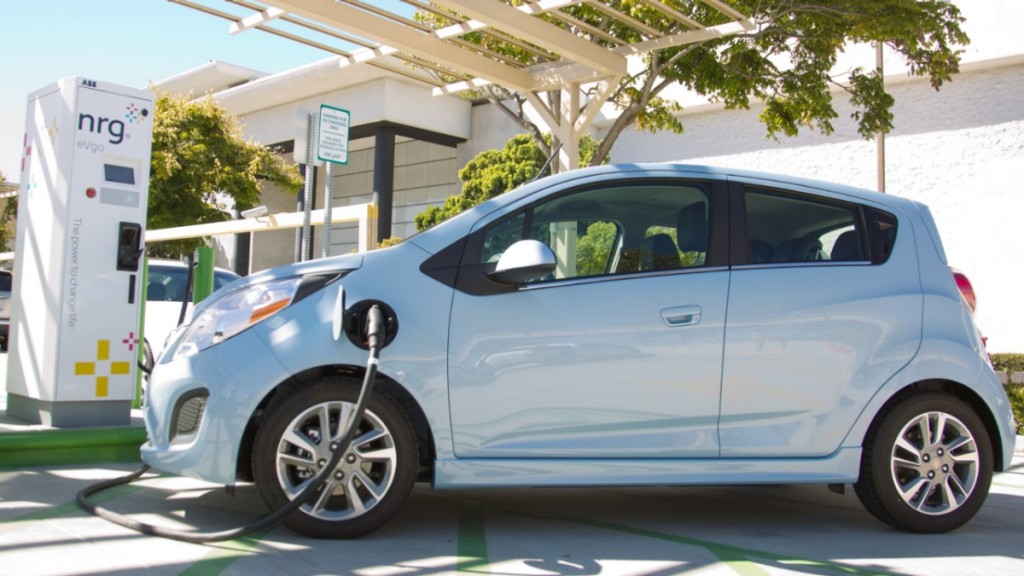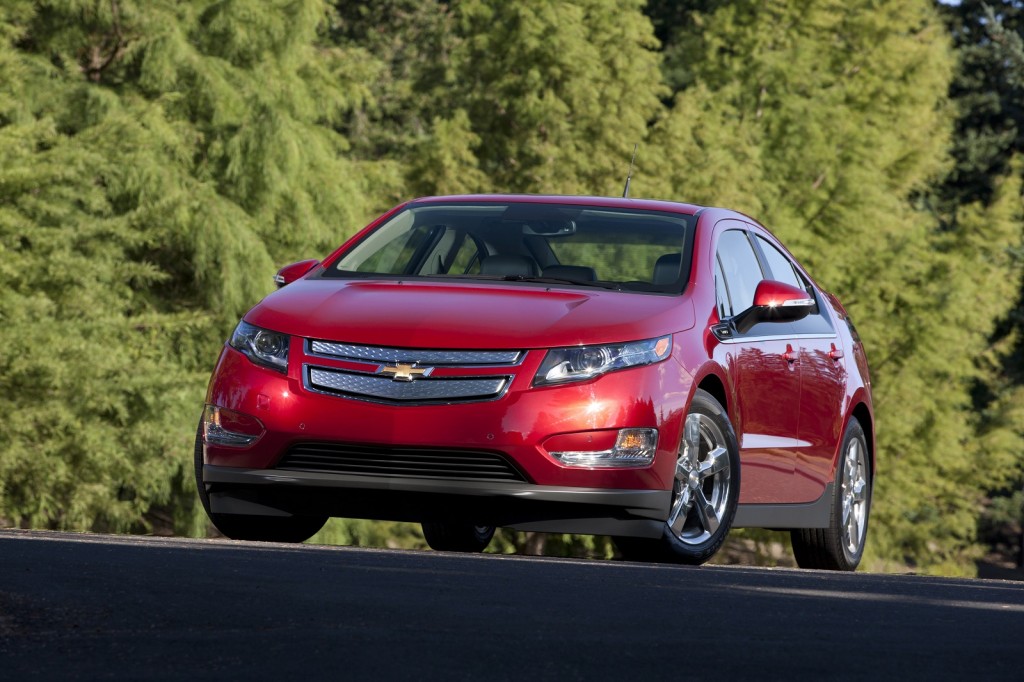"What if we're going about this the wrong way?"
Federal, state, and local officials are working to encourage the adoption of plug-in electric cars, whose U.S. sales almost doubled last year against those of 2012.
But their efforts may suffer from a fatal flaw, according to a new paper published in the journal Energy Policy and cited by Green Car Congress (via ChargedEVs).
Overly focused on mainstream?
The paper's authors argue that current U.S. electric-car policy suffers from "mainstream consumer bias," the assumption that plug-ins must appeal to average car buyers in order to be successful.
The authors suggest that instead of seeking to replace as many internal-combustion vehicles with plug-ins as soon as possible, policymakers should focus on early adopters and applications best suited to the current state of electric-car technology.
They identify three main categories of policies intended to encourage electric-car adoption: research and development, investments in charging infrastructure, and vehicle tax credits or rebates.

Chevrolet Spark EV at CCS fast charging station in San Diego.
Charging station shutdown
The first two categories primarily focus on curbing range anxiety--by developing higher-capacity batteries, and continuing efforts to provide a network of electric-car charging stations comparable to the current web of gasoline stations.
The paper's authors, however, believe that the money devoted to those efforts would be better spent trying to get more electric cars into the hands of early adopters.
They cite surveys showing these niche buyers prefer at-home and at-work charging to public Level 2 and DC Fast Charging, and that investments in public charging stations "crowd out" investments that could bring more basic (i.e. cheaper) cars to market.
Tax incentives ineffective?
The authors also claim the well-known policy of offering tax incentives--such as the $7,500 Federal income-tax credit for new electric cars--is flawed.
Citing the Congressional Budget Office, they say the current tax Federal credit is too low to stimulate additional demand.
Instead, they suggest, the credit essentially subsidizes purchases by early adopters who would have bought plug-in electric cars even without a break from the government.
2014 Chevrolet Volt
Think small
Instead of what the author's call today's "biased" policies, the paper calls for electric-car policies to be reoriented around areas of the market where there is already demand for plug-in cars.
This could be done through "Strategic Niche Management," the targeted marketing of electric cars away from broad national marketing--such as GM's use of its Chevrolet Volt range-extended electric car to show off its green credentials--toward niches that emphasize their strengths.
Examples include car-sharing services and postal delivery or other local operations.
The paper's authors also advocate refocusing electric-car development on designs and features that appeal specifically to early adopters.
Finally, the authors propose replacing tax credits with more favorable loan and financing schemes--possibly factoring fuel economy or energy efficiency into the rate--allowing more buyers who want an electric car to actually afford one.
The underlying argument here is that it's better to pick low-hanging fruit--the available market for electric cars--in the short term, rather than work toward abruptly expanding the market by targeting segments that aren't yet receptive to the benefits of electric cars.
Could policies based on this argument get more electric cars on the road today? And how much danger would there be in delaying the push for mainstream adoption until tomorrow?
Leave your thoughts in the Comments below.
_______________________________________________












